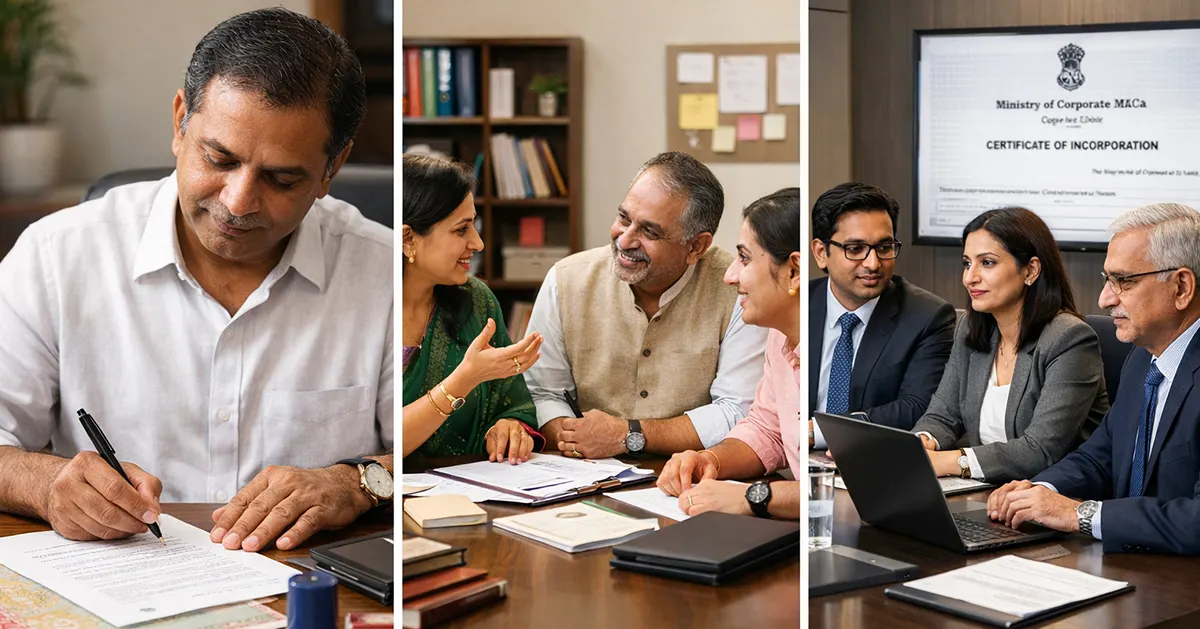
Introduction
Trusts happen to be an important aspect of most legal and financial systems to charities, family property, as well as other significant reasons. They ensure assets are managed in the best manner and shared along plans of the founder of the trust. For a trust to be efficient, it requires good leadership and management. In this case, the President, Secretary, and Treasurer will have significant tasks. Each person has different jobs, but they need to work together closely to make sure the trust does well. In this blog, we will look at the roles, tasks, and important skills of these three main people.
Overview of the President, Secretary, and Treasurer
Each role in a trust plays its significant part. The most known face of any trust is the President who becomes the head of the trust. A President normally ensures that the trust pursuing its mission controls the general direction it takes. The President often leads meetings and aids in decision-making, representing the trust inside and outside. Normally, the chairman of the trust is elected by the governing body of the trust. Such people could be fellow trustees or have a simple interest in the objectives of the trust.
The Treasurer serves to see after the money of the trust. They control the management of the finances of the trust by keeping records transparent, making financial reports, and checking where money is being spent. The Treasurer ensures that money transactions are done the right way and openly. The governing body makes financial rules, but the Treasurer takes care of the daily work done in the trust with money. The Secretary deals with the administrative side of the trust, ensuring that all necessary records are up-to-date, makes appointments, and communicates with third parties concerned with the activities of the trust.
Also Read: Ownership Structure Deep Dive: Trust and Individual Holdings
Personal Skills and Qualities Required
- President: The president of a trust needs to possess qualities that include good leadership skills and strategic decision-making in which to stay in tandem with the objectives of the trust. Effective communication is effective in strictly conveying the goals and plans of the trust to the stakeholders. Managing problems demands critical thinking and problem solving. The President must be diplomatic: to solve conflicts he would have to negotiate. Ethical integrity can or must also be in a very good standing too, because the President summons trust and inspires confidence.
- Treasurer: The Treasurer should have strong financial management skills because he or she is looking after the trust finances. Good understanding of accounting, budgeting, and financial reporting should be present. Practising extreme carefulness and accuracy is essential because an error can mushroom into a major problem. Analytical skills are necessary for a Treasurer to interpret the financial data and advise the board dealing with the trust’s finances. Risk management practices should be known to protect the trust’s assets. Understanding the legal and regulatory environment of trust finances is essential for compliance.
- Secretary: The Secretary should therefore be organised in handling several tasks that include scheduling meetings, making records, and filling out documents that concern the legal work of the organisation. Good communication skills will help in handling the information dealing with the president, the treasurer, and stakeholders as well and there is a need to maintain confidentiality in handling very delicate information. This requires a very strong work ethic since the work done by the Secretary has to be of high standard and should be followed up within timelines.
Common Liability for Breach of Trust
The trust properly is also the obligation of the President, Secretary, and Treasurer. Such negligence or improper steps may lead to personal liability for damages. Liability usually occurs in cases of gross negligence, fraud, or intentional misconduct. The courts generally safeguard any trustee acting in good faith and in keeping with the directives that guide the trust. The courts will only hold trustees liable when they are considered to have seriously malfunctioned or when they have caused harm to the trust or its beneficiaries.
Duties and Powers of the President, Secretary & Treasurer
- The roles of the president in this trust include being responsible in governance. Among other responsibilities, the president would head the meetings, ensure everything unfolds without hindrances, and even has the powers to call for special meetings in case anything is needed. The president sets an agenda to ensure activities run in harmony with the trust’s mission. Officers, committee members, and trustees are appointed by the President. They are a secondary signatory on financial documents; hence, they check that legal and financial actions are authorised.
- Secretary ensures smooth trust administration by coordinating meetings, drafting agendas, and proper minutes of the meeting. The secretary also distributes notices for meetings and other communications to trustees who are deemed important by stakeholders for notification. They are commonly the first port of call for any sort of inquiry into the trust, but they ensure that all the legal obligations are complied with.
- The Treasurer handles the finances of the trust, he ensures financial health. He oversees operations including accounts, expenditures, and reports. He forms budget development, works on adhering to financial limits, and ensures proper allocation of funds along with transparent documentation of transactions. The Treasurer manages investment of the trust so that resources produce returns supporting the cause of the mission.




